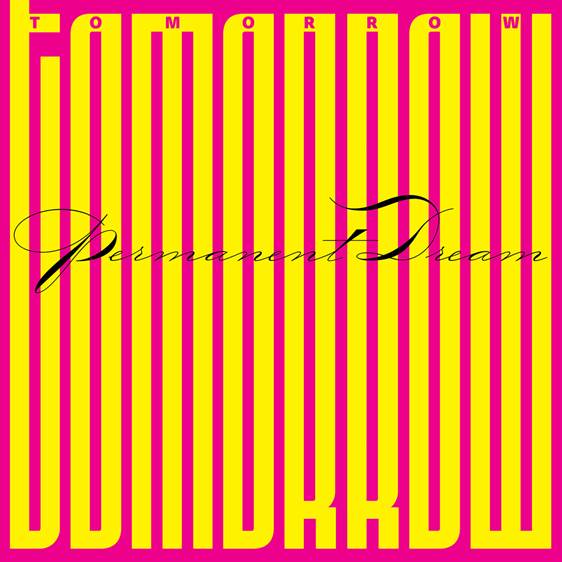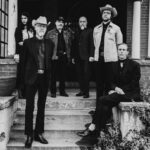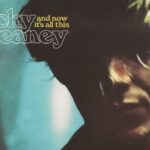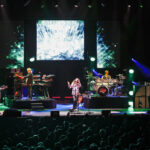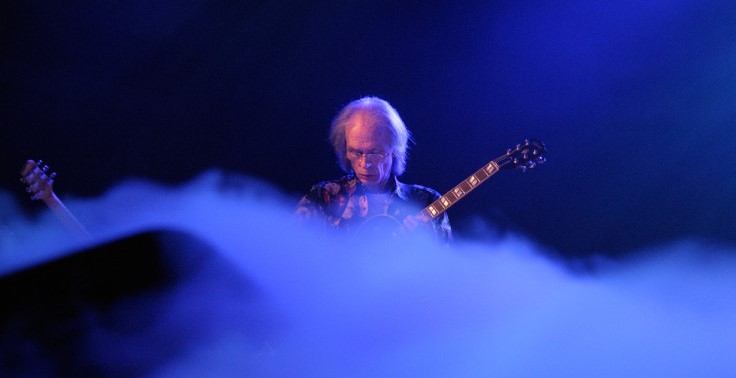
By Jason Barnard
Steve Howe reflects on his illustrious music career spanning from the 1960s to the present day. A standout moment in his journey was the release of Tomorrow’s debut album, which has recently undergone a reimagining. Our conversation will explore the intricacies of the album’s creation, the technological advancements used to enhance the tracks, and the creative process driving the project. Alongside delving into Howe’s notable accomplishments with The Syndicats and in YES, we will also discuss his latest album with the group, Mirror To The Sky. This record boldly blends YES’s iconic sound with innovative elements, cementing its significance in their evolution. This is an extract of a full interview available on The Strange Brew.
I’ve been listening to the new version of the Tomorrow album but it’s badged as being re-imagined. Can you tell us about what’s different with this new version?
Yeah, sure. Much like Giles Martin did with [The Beatles] Revolver, it was a process that I imagined could work. I got Keith [West] and Twink to agree to the idea. Basically, the album that we made in 1967, which came out in 1968 unfortunately, which was also a silly thing about it, it wasn’t really perceived as a psychedelic record and yet I knew that’s what the group was really heading into. So it’s a kind of a process. In other words the first thing we did was we requested the original mono mixes because they were the least available things of Tomorrow, because most of it was in this stereo format which was very unsatisfying and it was kind of tinpot. There were a lot of factors in it that were in the audio sense were missing. Anyway, I thought it would be quite easy to describe [he chuckles] so basically. like it says in the sleeve, I kind of re-imagined it so, in other words, I took the tracks into the technology and did minimal things to it. I mean some of it is virtually the same but some of it isn’t and the things that aren’t, particularly with ‘Revolution’. That song was a bit of a muddle what was going on in it – the different tempos and things like this – and there were gaps and all sorts of things so basically this reimagining was really like looking at the music and saying, well, What would be desirable to do this, to bring it into line with ‘My White Bicycle’? and things like that which were obviously purely psychedelic.
So, basically, things were adjusted more. It wasn’t really mixed so much as things were adjusted and we were able to do a tremendous amount now with the mono mix. You can adjust the eq’s on individual instruments. You can adjust the balances if they’re a bit kind of crude and lots of them were. So, at times, the harmony vocals were too loud, sometimes something was too loud and the general chaotic feeling that I corrected. So by taking three tracks off the album ‘Mary somebody’s Dress Shop’ [‘Auntie Mary’s Dress Shop’] and these other kind of songs [‘Colonel Brown’ and ‘Shy Boy’] which weren’t really treated seriously by us at all, they weren’t developed at all. So, anyway, we took those three tracks off but there was room for other sort of hidden gems like the album opens with the alternative version of ‘Real Life Permanent Dream’ which was really just a live version done in the studio and that’s how we, more or less, how we played it on stage and I started the album with that. The very purpose that we titled it Permanent Dream and also I wanted to show the energy in the band.
Then we go into the further songs which all have a little bit of treatment. So, basically, all I’m doing is stylizing things as much as I can, developing, getting things in tune, in pitch. Some of the tracks were running at the wrong pitch and that affects my ears a lot because it doesn’t sound right until it’s in tune. So we ‘in tune’ things which corrected tempos which and then we brought down a guitar or brought up the drums or basically we reposition those instruments to be more pleasing and we were thorough and doing this to every track, wherever it needed it. It was a lot of fun to do this, to make the mono mix really a convincing medium for Tomorrow.
It’s clear that with the title track of Mirror To The Sky and there’s ‘Luminosity’ as well from that album that span over ten minutes, that the creative element of YES and the drive continues to flourish.
Well. Things don’t happen without hard work. This isn’t a carousel floating down some snow in Switzerland. YES has always been a band that was prepared to work on things very hard so, yeah, it is nice and it also good that gradually from The Quest and now Mirror, we’re starting to get a scale in our music that we like. We’re not ever trying, well, if anybody says, “Oh why don’t you do a 20 minute piece?” I just say, “Look. Can you just not say that? When we get a 20 minute piece, we’ll have one.” But we’re not trying to get that. What we’re trying to do is to work on our songs individually as really beautiful things that we can create together and get everybody involved. Everybody has great parts. We get all the balancing right. We’ve got all the textual qualities right. But we don’t want to lose that flame and we want to keep the emotion and the excitement that we’ve got in that. So that’s all part of the YES thing. But also, behind the scenes of course, it’s also an organization. It has to work structurally, contractually, within rules that are applied to us and everybody else in the world. Also we are carrying on a flag of a band. So, in lots of ways, we are still working with everybody who’s ever been in YES in one respect or another, in different degrees, with different arms out from different eras.
I’m extremely proud to have come from The YES Album era and seen what I did in the 70s and then got back in ’95. It was much harder work in ’95 with Keys To Ascension and Open Your Eyes and, goodness me, there was just so many challenges that were greater in a way than the one when we had that new momentum – when Fragile came out and we were being welcomed into a more successful appreciation. So, continuing is exciting and it takes pace. It takes belief and strength. The bigger music we play kind of allows us to be more, not, ‘creative’ is a word that I try not to use. But to be more colourful, I suppose, and when you think about a great song like, let’s just say, ‘Penny Lane’. I mean that song is not like another Beatles song I can think of but nor is ‘I Am The Walrus’. So in a way The Beatles are totally the forerunners of this. Because, before that, bands did songs that all kind of sounded the same. It’s just a different song. There’s an organ and a guitar. The Beatles stopped doing that. They’d have a harmonica on this one, a Leslie guitar on this one. And basically I think that that’s the spirit of progressive music that was really started firmly by The Beatles in the sense of Psychedelia. And I’ve always said that Psychedelia developed and became Prog. So that’s my feelings about, like you say, YES, doing new music and also that we are, in a way, an incarnation of what YES needs to be and can be. And that’s the thing. ‘Need’ is one word but, yes, this is the YES that can exist and we’re very pleased.
Further information
This is an extract of a full interview available on The Strange Brew.
‘Tomorrow: Permanent Dream’ is released on 28 April 2023: CD, Black vinyl, Violet vinyl
YES’s new album ‘Mirror To The Sky’ is released on 19 May 2023: YES Official, Burning Shed
An audio podcast of this interview is due to be released by early May 2023.Acknowledgements
Transcript and extra research provided by Nigel Davis.Copyright © Jason Barnard, 2023. All Rights Reserved. No part of this article may be reproduced or transmitted in any form or by any means, without prior permission from the author.
